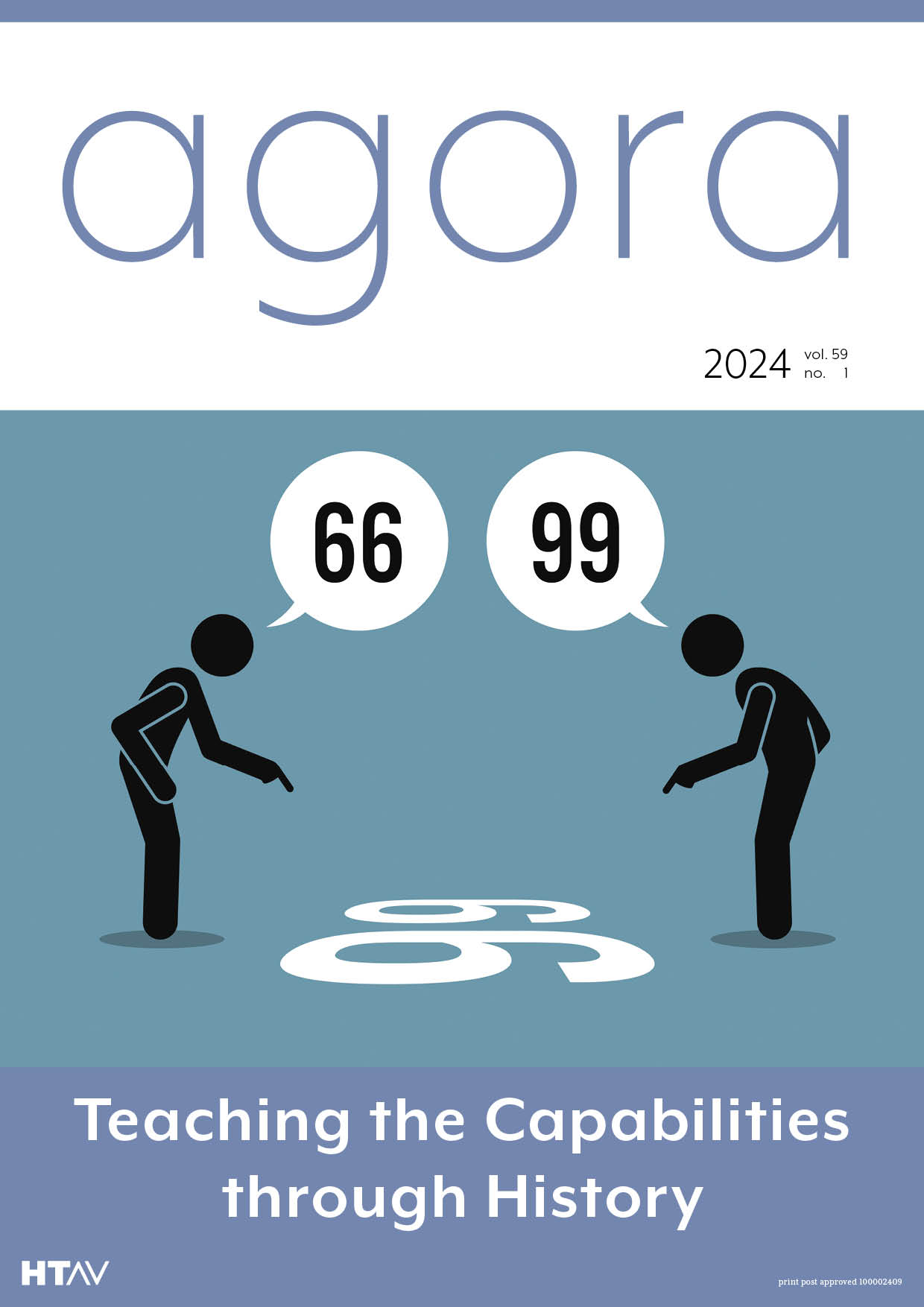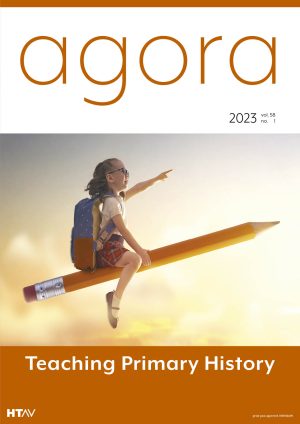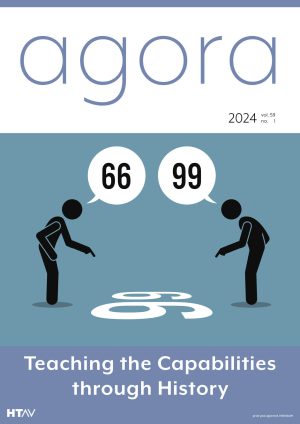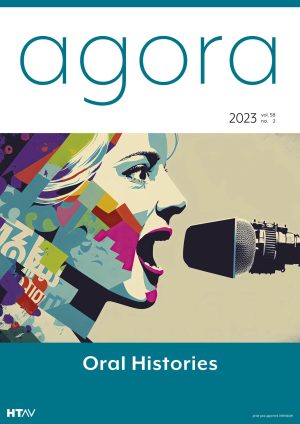Contents
Reflection | Ashley Keith Pratt
Editorial | Guy Nolch
SUNGRAPHO | Research and analysis
Teaching Indigenous Histories through Indigenous Ways of Knowing and Being
Ken Hayward, Libby Jackson-Barrett, Mary-anne Macdonald and Sarah Booth, Edith Cowan University
Teaching Indigenous histories requires an understanding that time and place are not linear in Aboriginal cultures, but are connected through changes in relationships.
THEMA | Reflections on the theme
Critical Evaluation of Who Edits Wikipedia Entries, and Why
Heather Ford
Critical Thinking about Colonial News Reports of Attacks by Indigenous Tasmanians
Lyndon Pratt
Teaching Intercultural Capability Starts with a Diverse History Curriculum
Brad Nguyen
Integrating Intercultural Capabilities in the History Classroom
Byron Haast, Phillip O’Brien and Dafina Spahiu
Making Space for First Nations Peoples in Intercultural Understandings
Thara Brown and Scott Alterator
How to Foster Respectful Discussions when People Disagree on an Issue
Nyree Wilson
Teaching War Histories to Students with Personal Experiences of Warfare
Dr Bronwyn Cook
The Capabilities Gained from Studying History Will Get You a Good Job, Studying STEM Might Not
Peter Acton
Approaches for Activating the Ethical Understanding Capability
Selena Prior, Federation University
History provides case studies that navigate complex ethical scenarios in a way that no other learning area can. Here are some approaches to incorporating the curriculum’s ethical capability.
Teaching Ethical Capability through History
Aristidis Galatis
PRAKTIKOS | Teaching Ideas
Pharaoh: Creative and Critical Thinking at the NGV
Johanna Petkov and David Menzies, National Gallery of Victoria
Historical objects on display in the National Gallery of Victoria’s upcoming exhibition Pharaoh offer students the opportunity to extend their critical and creative thinking skills through object-based learning.
The Story Box of Life: Sharing Identities through Objects
Annelies Van de Ven and Sharyn Volk, The Hands-on-Humanities Project
Objects demonstrate a unique ability to inspire storytelling, open conversations, grow connections, and develop observation, analysis and interpretation skills while nurturing intercultural empathy.
Why Did Colonial Art Make Australia Look So English?
Sue Rabbitt Roff, University of Dundee
The Anglicisation of early settler art reflects intercultural misunderstandings in the first 25 years of contact.
The Power of Socially Shared Regulation of Learning
Nathan Wood-Davies, The Mac.Robertson Girls’ High School
Socratic Circles are an effective way to help students achieve the personal and social capabilities by working together to meet the same learning goals.
Teaching the Capabilities through a Variety of Historical Tasks
Diana Millar, Author and former teacher
History teachers can employ some simple activities that address the four capabilities outlined in the curriculum. Here are some you can use in your class.
KRITIKOS | Reviews




